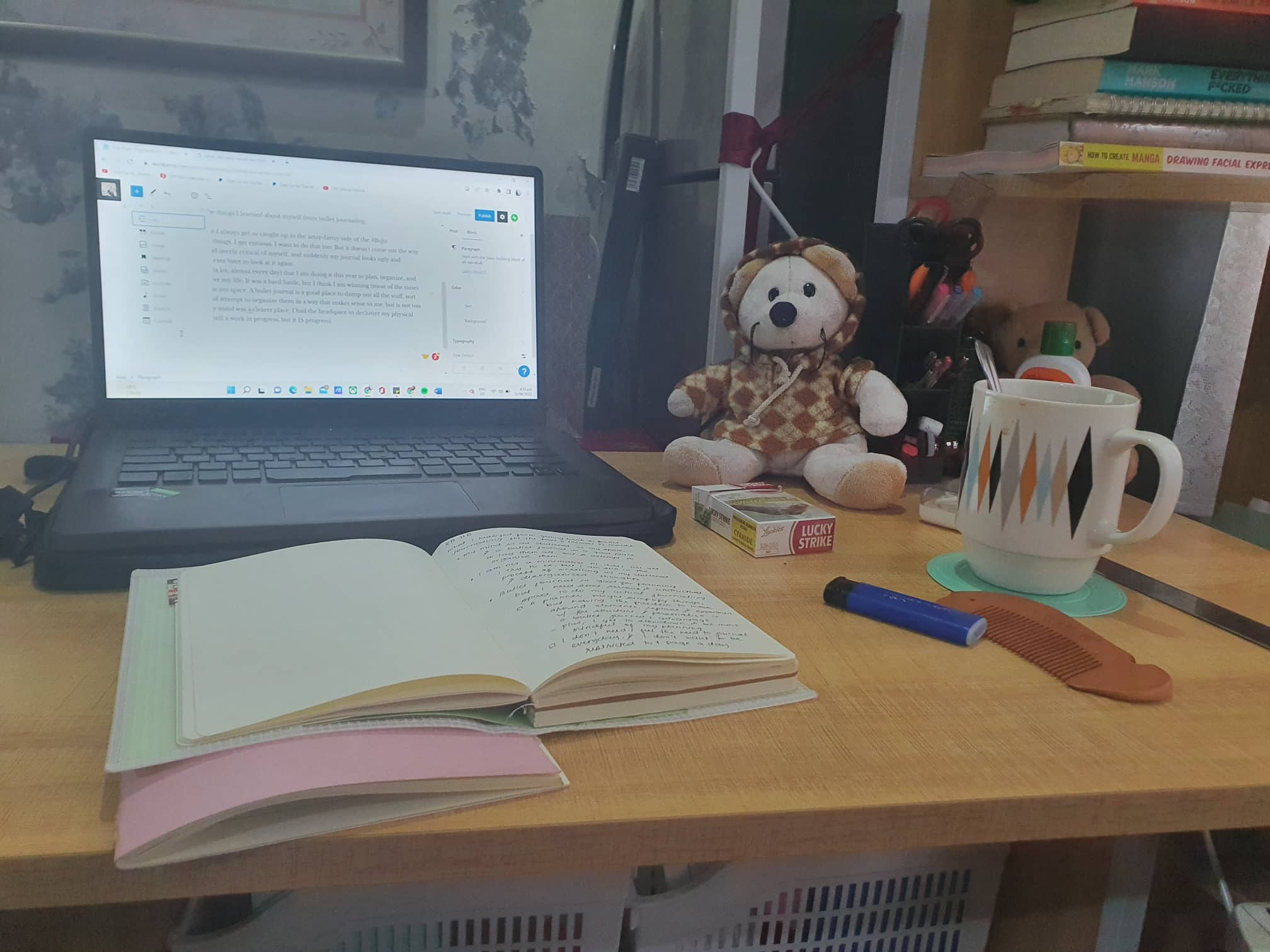Ciel opened her eyes and found herself in a circular room full of doors. Doors of different shapes and sizes. Doors of different colors and differently-shaped doorknobs. Doors with peepholes, and catflaps, and bells. Doors adorned with wind chimes.
Some doors look familiar, and others do not. Some were outright strange, and others were flat-out scary.
“Where am I?” Ciel mutters to herself.
On the floor, she noticed, right at the center of the circular room, were keys.
Keys of all shapes and sizes. Some look modern and others look ancient. Some don’t even look like keys at all.
“Maybe those keys open certain doors,” Ciel said to no one in particular. The room was eerily quiet yet loud at the same time. She felt scared to hear her blood flowing through her veins and the steady thump-thump of her heart wasn’t bringing her comfort. So she speaks her thoughts out loud.
Ciel bent down and examined the keys. She tried sorting them out and placing them beneath the doors that felt like their matching set. She did this until all doors have a key beneath them.
“I wonder which door leads out of this room?” Ciel wonders aloud.
She stooped down in front of a plain white door and grabbed the key on the floor. She tried to put in the keyhole and turned.
The door was unlocked, but it would not open.
She tried the same for the next one, and the next one, and the next, and even though most of the keys are the right fit for the doors, none of them would budge.
“What’s going on?” Ciel’s voice started to get higher.
She’s slowly feeling suffocated and closed-in in this circular door with lots of doors that don’t open.
She tried again, and again, and again. Until she got too tired and scared and sat down the middle of the room, hugging her knees to her chest.
“Calm down,” she tried to soothe herself. “Think. How do I get out of here?”
She noticed the catflaps and peepholes and bells. She tried them all, peeking through the catflaps, trying to see through all the peepholes, ringing all the bells. None of the door still opened.
Discouraged, and tired of freaking out, Ciel decided to lie down on the floor, at the center of the room.
She can’t make heads or tails of how she got here, feeling trapped. She can’t figure out why despite having all the right keys, none of the doors would open. She lay there, trying to empty her mind of the panic that is trying to consume her.
She cried, and then she stopped. She freaked out, and then she calmed down. She lay there for hours until her back started to hurt, then she decided to sit up.
“I am tired,” she whispered.
She decided to rest her head on her knees, hugging her legs to feel safe. She curled into a tight ball and decided to empty her mind.
“I’m okay, I’ll find my way out,” she kept telling, over and over and over, until she feels like she’s starting to believe.
She decided to stand up, stretched her sore body from being still so long, and walked to the door in front of her.
It was a familiar door. It looked like her bedroom door. Back when she was a child, and living in the suburbs with her parents.
She chuckled, remembering how her father banged his shoulder against her doorknob, making it slightly loose.
“I have to jiggle it a bit and turn it just the right amount,” Ciel muttered.
She did just that, and the door creaked open. She saw her childhood bedroom and felt tears sting her eyes.
She moved on to the next door, another familiar door, and remembered little quirks, which doors need banging near the hinge before it will open, that apartment door that needs a little kick, her best friend’s room, where she had to knock softly three times before opening because her friend has a little OCD.
Every door she opened was a memory, a story, an idea. She revisited places she missed, and places she never wanted to see again.
At first, she was just looking for the door that seems to lead outside, but as she went on opening them one by one, she got lost in all the stories.
Then she got to the unfamiliar ones. The ones she’s forgotten, the ones she never opened, the ones she never remembered seeing.
“How do I open doors I never knew how to open?”
She gave it a light experimental push, a little knock there, some scratching sound here. She tried different sorts of things, envisioning different scenarios of what kind of people would open these doors, and who lives on the other side. What would they do? What are their quirks? Do they have passwords?
She played and discovered and managed to open some unfamiliar doors. Some of them led to familiar places, some she never saw before. Or she’s forgotten.
But the new places beyond those unfamiliar doors told her new stories.
She continued her quest to open all the doors, forgetting her original mission of getting out of that room.
Finally, she got to the final door.
“What’s the key?” was written in nice, loopy cursive.
She smiled. She realized something as she went through all the doors, and opened them all.
“I’ve been the key all along,” she whispered.
And the final door swung wide open.
Sometimes, we feel trapped in our minds, looking for the keys that would unlock the ideas that lead to a story, an artwork, a song, a title, a topic, a solution.
We are so busy sorting, filing, panicking, lamenting, forcing doors open, when really, we are the key all along.


